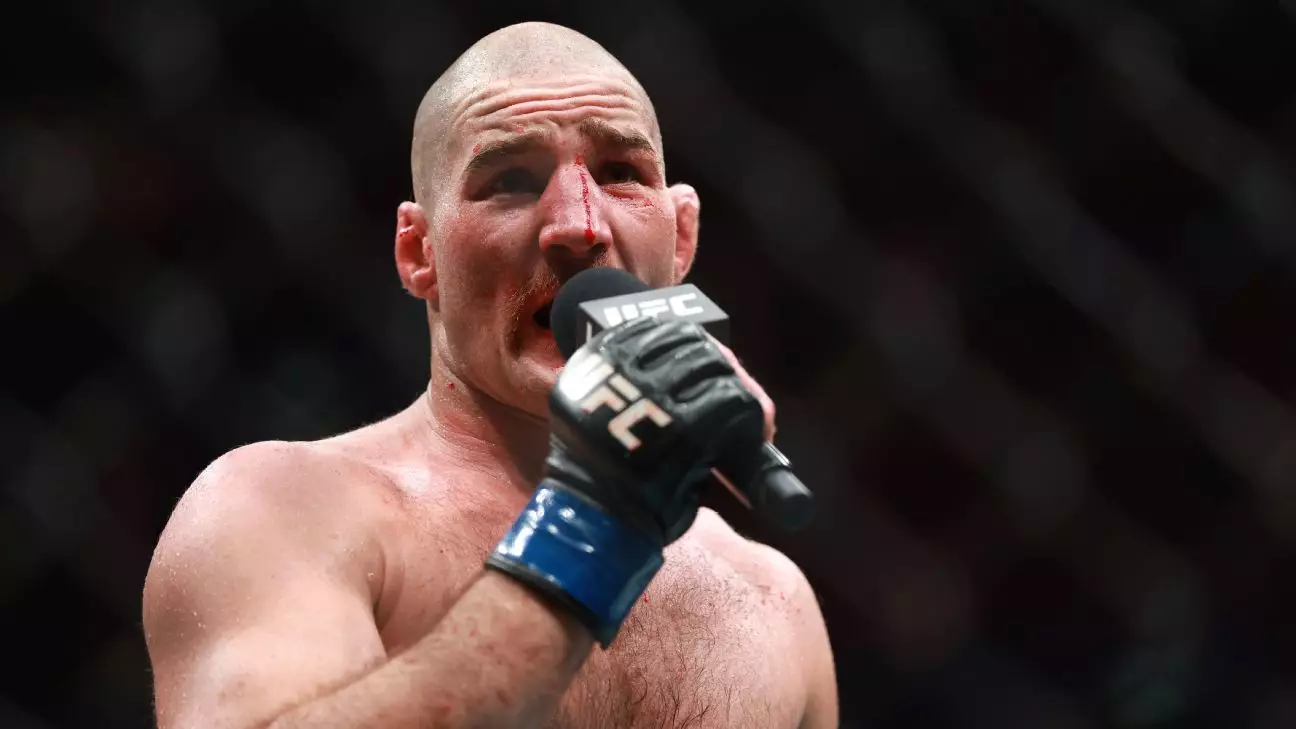In the high-stakes world of mixed martial arts (MMA), the relationship between a fighter and their coach is foundational; it can be the difference between victory and defeat. Recently, this dynamic came under the spotlight when former UFC middleweight champion Sean Strickland expressed discontent with his longtime coach, Eric Nicksick, following Strickland’s underwhelming performance at UFC 312 against Dricus Du Plessis. Their conflict raises questions about motivation, accountability, and the support structures that underpin an athlete’s journey.
Strickland lost the title fight decisively, with the judges awarding Du Plessis a unanimous decision marked by scores of 50-45, 50-45, and 49-46, which prompted Nicksick to publicly critique Strickland’s performance. He described it as “uninspiring” and suggested that Strickland seemed “sleepwalking” during the bout. These comments clearly struck a nerve with Strickland, leading to his assertion that he would likely no longer have Nicksick in his corner.
Strickland’s response to Nicksick’s criticisms reflects a broader struggle within the sports community: the balance between honest feedback and the emotional resilience required to compete at elite levels. Strickland emphasized his friendship with Nicksick but also noted that the coach’s public remarks necessitated a personal explanation. This dynamic highlights the tension between an athlete’s vulnerability and the necessity for candid coaching.
While criticism can serve as a catalyst for growth, it can also induce a defensive posture from fighters whose livelihoods hinge on performance. Strickland’s assertion that he faced significant physical challenges—including a broken arm and a staph infection during training—illustrates that external factors can severely impede performance. He confessed that these issues made his fight camp “a struggle,” suggesting that the narrative of a fighter’s success is often complex and multifaceted, requiring a deep understanding of their personal battles.
Athletes frequently encounter setbacks, both physical and psychological. Strickland’s insistence that he “didn’t quit” despite suffering multiple injuries shows a commendable level of tenacity. Yet, the fallout with Nicksick underscores the emotional weight that criticism can carry in such a demanding sport. When a coach expresses disappointment, it can exacerbate feelings of inadequacy, particularly when athletes are already grappling with pain and self-doubt.
Strickland’s mention of his ongoing friendship with Nicksick indicates that the emotional bonds formed in combat sports are potent yet fragile. The breakdown of a coaching relationship raises an essential question for fighters: How do they navigate the dual needs for tough love and emotional support? Strickland’s eventual distancing from Nicksick speaks to this dilemma, illustrating that even the closest partnerships can be tested under intense public scrutiny.
As Strickland elaborated on his struggles during the fight camp, he revealed moments of doubt that many athletes share but seldom voice. Understanding that “we all have excuses” is a leap towards accountability; however, for an athlete, owning those issues publicly can be risky. Strickland’s desire to have other “savages” from his gym, Xtreme Couture, corner him in the future suggests a shift in approach. It hints that he may seek not just companionship but a different kind of support—one that nurtures his fighting spirit rather than one that critiques it under pressure.
With a professional record of 29-7 and a history of recent victories alongside his loss to Du Plessis, Strickland’s future remains bright; yet, how he addresses these interpersonal conflicts will define his trajectory in the sport. Learning to reconcile personal struggles with professional expectations is a challenge that all athletes face. In Strickland’s case, the resolution of his relationship with Nicksick may ultimately inform how he prepares for and responds to obstacles both inside and outside the Octagon.
The conflict between Sean Strickland and Eric Nicksick transcends typical sports drama; it encapsulates the intricate dance of motivation, trust, and performance. As Strickland navigates his path in MMA, lessons learned from this episode could shape not only his journey as a fighter but also his understanding of the complex nature of teamwork in a sport that demands nothing less than total commitment. In combat sports, as in life, resilience may come hand-in-hand with adapting to both the pressures of performance and the intricacies of personal relationships.


Leave a Reply